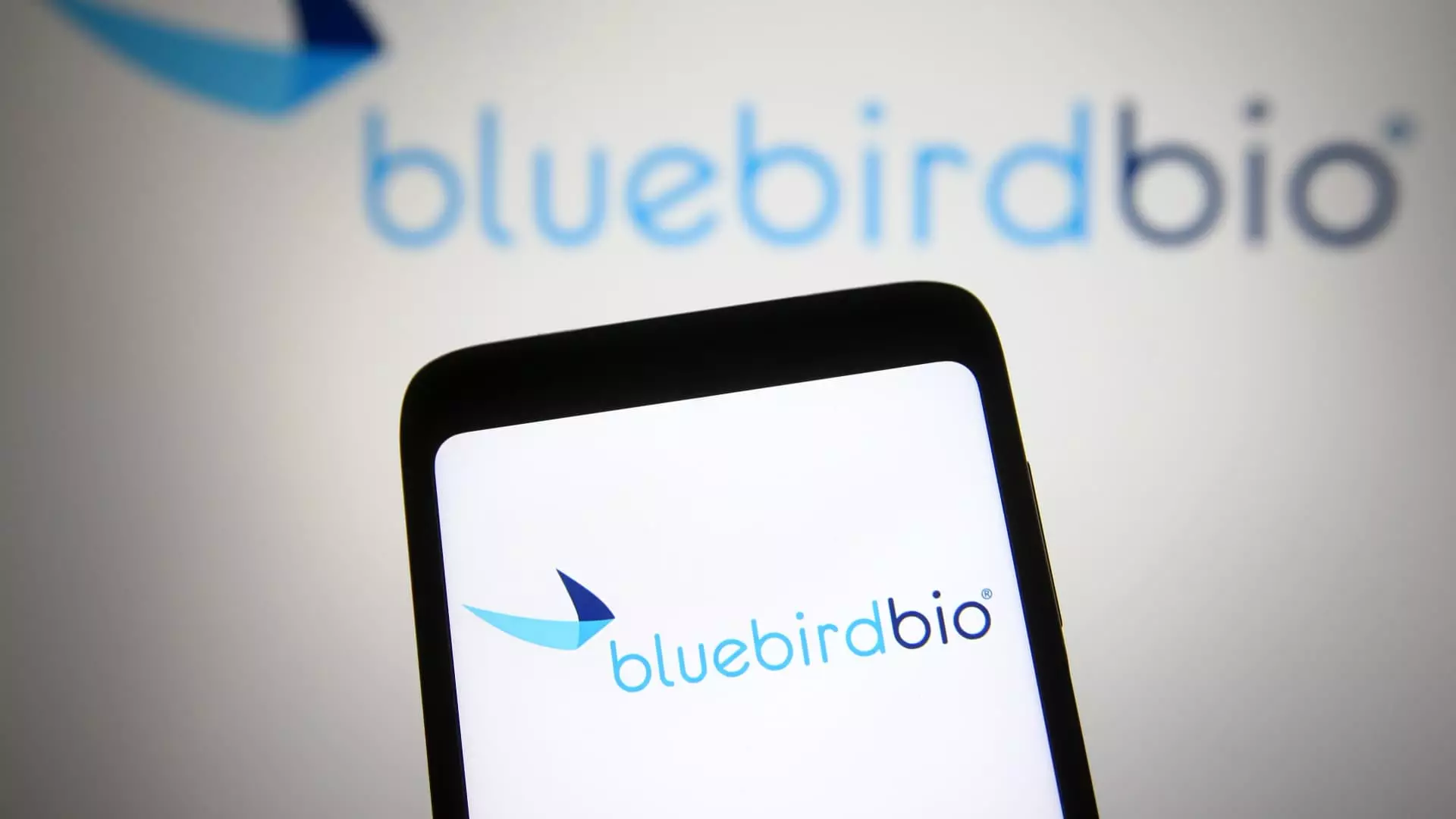Bluebird Bio, once celebrated as a beacon of hope in the biotech realm, has experienced a steep decline in its fortunes that culminated in its recent sale to private equity firms Carlyle and SK Capital for $30 million. This transaction starkly contrasts with the company’s once promising trajectory, which saw it buoyed by the optimism surrounding innovative gene therapies aimed at treating genetic disorders. Shareholders will receive an initial payout of $3 per share, alongside contingent bonuses if Bluebird’s therapies reach predetermined sales milestones by the end of 2027. This historical context underscores a significant turn of events for a company that once boasted a market capitalization nearing $9 billion.
For over three decades, Bluebird Bio has set its sights on the challenging objective of developing one-time genetic treatments. The company captured investor enthusiasm with groundbreaking approaches to curing diseases such as sickle-cell disease and beta thalassemia. However, a series of significant scientific setbacks and operational missteps contributed to an unforeseen decline in both market confidence and financial stability.
The pivotal moment in Bluebird’s downfall occurred in 2018 when a patient treated with its gene therapy developed cancer. Although the company maintained that its therapy was not responsible, this incident raised alarming questions about the long-term safety and efficacy of its innovative, yet unproven, DNA-editing treatments. Escalating doubts among investors began to surface, compounded by Bluebird’s subsequent separation of its cancer research into another entity, 2Seventy Bio, which further diluted its revenue potential.
With ongoing challenges in securing favorable pricing and acceptance in European markets, Bluebird’s financial woes spiraled. The ambitious pricing strategy for its gene therapy, Zynteglo, which teetered at $1.8 million per treatment, failed to resonate with health payers. Consequently, the company withdrew Zynteglo from Europe shortly after its approval in 2021, redirecting its focus towards the U.S. market, where the path to regulatory approval remained uncertain.
Despite the subsequent approvals of Zynteglo, Lyfgenia, and Skysona, all positioned to address critical health issues, they have not provided the expected financial relief to the company. Reaching deficits in the hundreds of millions annually, Bluebird’s operational sustainability came into question, leading to forecasts cautioning that its cash reserves would only last into early 2023.
The $30 million acquisition thoroughly contrasts with the exhilarating heights attained under the previous leadership of former CEO Nick Leschly, who famously capitalized on stock sales that netted over $80 million. It starkly illustrates the harsh reality facing Bluebird. This shift in ownership not only signifies a corporate restructuring but also symbolizes a critical juncture in the gene therapy sector.
The apprehensive landscape within biopharmaceuticals raises broader debates about the sustainability and profitability of one-time treatments for rare disorders. Bluebird’s fate echoes a growing concern, as evidenced by the challenges faced by its competitors. Vertex’s Casgevy for sickle-cell therapy encountered a sluggish market entry, while Pfizer’s recently approved hemophilia therapy was abandoned due to an absence of demand.
Despite Bluebird Bio’s trajectory declining into financial turmoil, there remains an undercurrent of hope among patients and advocates. Testimonials from individuals who have experienced the transformative impacts of Bluebird’s therapies reveal the tangible benefits of gene editing in altering lives for the better. While the company’s financial struggles paint a bleak picture for its future, the potential of its therapies continues to spark interest within the medical community.
Ultimately, as the field grapples with these challenges, Bluebird Bio’s story serves as both a cautionary tale and an emblem of resilience, as it navigates through turbulent waters in search of a renewed vision and purpose. Time will tell whether the substantial promise of gene therapies can be harnessed into a sustainable business model or if Bluebird’s fate is merely a reflection of broader industry challenges that remain unresolved.

